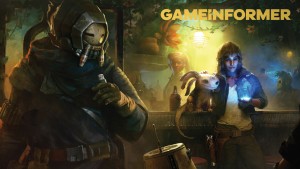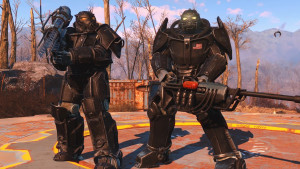Please support Game Informer. Print magazine subscriptions are less than $2 per issue
Kotick On Success, Failure, And The Challenge Of Innovation

Activision CEO Bobby Kotick has a reputation in the industry for speaking his mind. In a new interview, Kotick talks about how he fosters innovation within the company, outlines the rise and fall of Guitar Hero, and speaks candidly about the stings of failure.
Activision pulled the plug on Guitar Hero in February, putting the former juggernaut into stasis indefinitely. Speaking with Forbes, Kotick details the franchise's early success, which eventually led to the DJ Hero offshoot, and explains why he thinks audiences lost interest.
"So Guitar Hero has had enormous success – we didn’t start the company that made Guitar Hero, we bought it after it started, it put the first one in the marketplace. We had a view that this was something that had much more broad appeal, and that because it’s a manufactured product, being efficient in the supply chain could get the manufacturing costs down. We thought our relationships with the music companies would be more valuable than a small start-up company could ever develop on their own. So we bought the company, and after a few iterations of the game it became one of the most successful games of all time."
"And then we didn’t really take the time that we usually take to understand audience behavior. It was one of those things where we were resting on the idea that one of the essential fantasies of video games is to unleash your inner rock star. And it didn’t really matter how you did that, but as long as you were allowing people to unleash their inner rock star fantasies, you’d continue to be successful. So we went off on a passion project that had a point of differentiation – which is called DJ Hero."
"And in hindsight, if you step back –and it really would have been a simple thing to do– we should have said, ‘Well, how many people really want to unleash their inner DJ?’ And then out of the people who do want to unleash their inner DJ, how many want to do it in the context of a game where you earn points, versus just taking a DJ deck or tools on their Macintosh and actually being a DJ? And it turns out it’s a very small market."
"But we created this critically acclaimed, highly rated game – and these are the hardest failures, when you put your heart and soul into it and you deliver an extraordinarily well received game, and nobody shows up to buy it. So that’s what happened with DJ Hero. At the same time we were so excited about going down this new direction with DJ Hero, I think we abandoned a bit of the innovation that was required in the Guitar Hero franchise."
Kotick adds that working with the music industry was a challenge.
"In the case of Guitar Hero, we did the research and it was very clear people didn’t want more '80s heavy metal music," he says. "But what they wanted was very difficult for us to get from the music companies. I’ll give you an example: The number one thing that our audiences wanted in Guitar Hero was Led Zeppelin. But we couldn’t get Led Zeppelin to consent to give us the rights. And there were a lot of instances of that, a whole host of artists who just didn’t want to give rights to Guitar Hero, and it was hard to get around that. And then there were other things… we put things out there that were not ready for prime time and that today actually would resonate very well with audiences."
Guitar Hero was axed in February, along with the reboot of True Crime, True Crime: Hong Kong. Kotick doesn't name names in this section, but he does describe a project that sounds an awful lot like the late open-world action game.
"In one case we were doing a game that was more of an open world Grand Theft Auto-style game, something that our company had aspired to build just a little bit more audience friendly, not as violent as Grand Theft Auto, but more focused on the driving and the fighting, and less about the profanity. And so it wouldn’t have been as controversial content, but really great dynamic in the game play. And we recognized that after giving it a good college try for three years we didn’t have the skills at the company to do that type of game, so we canceled it. And I think that it was a demonstration to the organization that focus is going to get rewarded, and that if you can’t after a sustained period of time get to that level of excellence, then we’re going to have to make a change."
Check out the complete interview here for more great information, including examples of how Kotick rewards innovators within the company, and why it's important to know your limitations.










